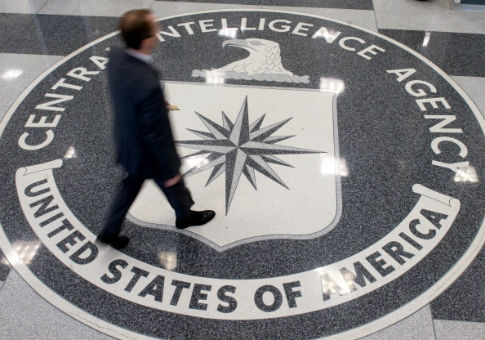WikiLeaks released on Tuesday what it claims are thousands of Central Intelligence Agency documents and files that reveal how the agency hacks computers and other devices, including smart phones, smart TVs, and messaging applications.
WikiLeaks said in a press release that the collection of documents "gives its possessor the entire hacking capacity of the CIA." The trove of documents, titled "Vault 7," was allegedly provided by a former U.S. government hacker and contractor.
A CIA spokesman would not comment "on the authenticity or content of purported intelligence documents," the Wall Street Journal reported. But Edward Snowden, a former National Security Agency contractor who leaked NSA surveillance programs in 2013, wrote in a tweet Tuesday that the documents look "authentic."
Still working through the publication, but what @Wikileaks has here is genuinely a big deal. Looks authentic.
— Edward Snowden (@Snowden) March 7, 2017
An intelligence source told the Journal that the information does relate to CIA hacking devices and techniques, and that the information could "jeopardize ongoing intelligence-gathering operations." The source said if the leaks are genuine, they would provide a "blueprint" of United States surveillance, and would be far more damaging than Snowden's leaks.
WikiLeaks stated that the number of published pages in "Vault 7" already eclipses "the total number of pages published over the first three years of the Edward Snowden NSA leaks." But the website noted that it has made 70,875 redactions in total on the identities of "thousands of CIA targets and attack machines throughout Latin America, Europe, and the United States."
The source who provided WikiLeaks with the documents believes that the widespread hacking abilities of the CIA "urgently need to be debated in public, including whether the CIA's hacking capabilities exceed its mandated powers and the problem of public oversight of the agency."
"The CIA found itself building not just its now infamous drone fleet, but a very different type of covert, globe-spanning force–its own substantial fleet of hackers," WikiLeaks said in its press release.
Wikileaks claims that the CIA's hacking team provides the agency with its "own NSA," so that it does not have to disclose its operations to the actual NSA.
"Vault 7" is the first of a series of leaks WikiLeaks plans called "Year Zero," which will cover the CIA's alleged covert global hacking exploits. WikiLeaks asserts that most electronic products are not safe from CIA hacking.
One of the hacking abilities of the CIA that "Vault 7" reports is a bug called "Weeping Angel," which allegedly was developed by the CIA's Embedded Devices Branch. After infesting a smart TV, the bug turns the TV into a covert microphone that will record conversations even if the TV appears to be turned off.
CIA malware also targets OSx, Linux, Windows, and routers, according to WikiLeaks.
WikiLeaks released hacked emails from Hillary Clinton campaign manager John Podesta's private account during the 2016 presidential campaign last fall, but this new information, if legitimate, could be damaging to President Donald Trump. The information WikiLeaks obtained shows that any phones used for a presidential Twitter account are not safe. The malware that "Year Zero" will allegedly reveal contains a blueprint for hacking the phones that are in control of personal presidential Twitter accounts.
